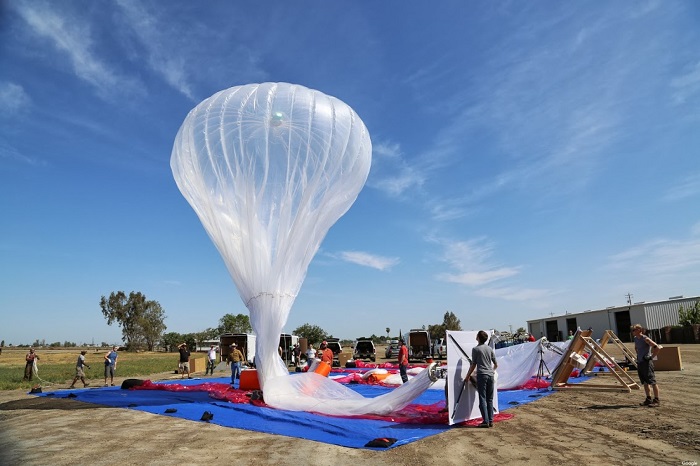For those unfamiliar, back in 2013, Google announced a project called “Google Loon”, which will use balloons 49 feet wide sitting 12 miles above the Earth’s surface, to transmit broadband to devices back on the planet.

Ground-based stations sixty miles apart will communicate with solar-powered radio transmitters fixed to the balloons, and navigators will steer the balloons using the wind to stay along the 40th parallel.
Project Loon has now advanced to the point that Google wants to expand its trials into different areas of the United States. As such, it has taken the initiative to address the obvious question that most people will have when they hear about this project — what affect will the radiation associated with this project have on humans below.
In a letter to the FCC, the company puts it rather succinctly — none. It notes balloons will be delivering broadband from 60,000 feet, which is high enough that any RF energy received by humans would be within limits for airborne and terrestrial transmitters in the 71-76 and 81-86 GHz bands (E-band).
“Some commenting parties worry that the radio-frequency (RF) energy from Google's proposed testing could harm humans, animals, or plants in the vicinity of the test operations,” the letter reads. “Although we respect that the commenters' concerns are genuinely held, there is no factual basis for them.”
The company adds: “Even if an airborne transmitter were aimed precisely at a person on the ground directly below it, the signal strength received on the ground would be millions of times weaker than FCC limits.”
While the company has repeatedly stated it plans to use this service as a means for improving upon areas that are lacking coverage — not as a way to compete directly with existing carriers — with new product likes Google Fiber and Google Fi already expanding across the country, many are convinced that Project Loon may soon be used to service other Google direct-to-consumer broadband products.
Read Google’s full letter to the FCC.
Story via DSLreports.com
Advertisement
Learn more about Electronic Products Magazine





